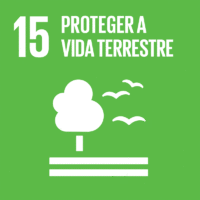Ciência_Iscte
Comunicações
Descrição Detalhada da Comunicação
Transitions in the Portuguese landscape: historical perspective and the new trends
Título Evento
XXVIIIth European Society for Rural Sociology Congress "Rural futures in a complex world"
Ano (publicação definitiva)
2019
Língua
Inglês
País
Noruega
Mais Informação
Web of Science®
Esta publicação não está indexada na Web of Science®
Scopus
Esta publicação não está indexada na Scopus
Google Scholar
Esta publicação não está indexada no Overton
Abstract/Resumo
The Portuguese Agrarian Question, particularly the need to provide food for self-sufficiency, has concerned different authors throughout the centuries. Together with the need to populate the territory for defence purposes, these questions have inspired the production of important public policies with different results. During the twentieth century there were some legislative movements which have encouraged agricultural production and the maintenance of people in rural areas. The ones with the highest impact were the wheat campaigns in the early 1930s and the agrarian reform in 1975, both heirs to eighteenth century physiocratic and mercantilistic theories.
After a summary of some of the most significant centuries old measures and legislation intended to solve agricultural and social issues in rural areas, most of them with scarce long term results, the present situation of the Portuguese rural areas is hereby described. Since the 1960s a huge rural exodus has resulted in a now irreversible depopulation of eighty per cent of the Portuguese territory, where less than twenty per cent of the population lives. Agriculture is no longer the main activity and new forms of occupation of rural areas have arisen.
From rural tourism to the promotion of heritage, both material and natural, many public policies by the central government and the municipalities have been put in place in order to attract people, families and private companies. Even if these policies haven’t got the capacity to reverse depopulation, at least they try to provide services and possibilities for a better quality of life for the remaining few who still resist urban attraction.
However, recently a new trend has invaded the Southern rural landscape: associated with the use of water from dams such as Maranhão, Montargil, Alqueva and Santa Clara, there has been a huge expansion of super-intensive red fruits and olive monoculture. This new type of agriculture is a novelty in the Portuguese panorama and it places our country in a similar situation to raw material dependent economies such as Brazil, Paraguay and such. Farms are now owned and explored mostly by foreigners in an international trend for land grabbing, resource appropriation and excessive use of water, chemicals and technology. It causes environmental danger, genetic erosion and the end of biodiversity. And it does not benefit local populations nor create jobs, because it uses seasonal labour, mostly illegal immigrants.
How do natural heritage and attraction strategies to rural areas cope with this new landscape?
Agradecimentos/Acknowledgements
--
Palavras-chave
agrarian question,territories,History,public policies,authors
Classificação Fields of Science and Technology
- Ciências Políticas - Ciências Sociais
- História e Arqueologia - Humanidades
Contribuições para os Objetivos do Desenvolvimento Sustentável das Nações Unidas
Com o objetivo de aumentar a investigação direcionada para o cumprimento dos Objetivos do Desenvolvimento Sustentável para 2030 das Nações Unidas, é disponibilizada no Ciência_Iscte a possibilidade de associação, quando aplicável, dos artigos científicos aos Objetivos do Desenvolvimento Sustentável. Estes são os Objetivos do Desenvolvimento Sustentável identificados pelo(s) autor(es) para esta publicação. Para uma informação detalhada dos Objetivos do Desenvolvimento Sustentável, clique aqui.

 English
English




